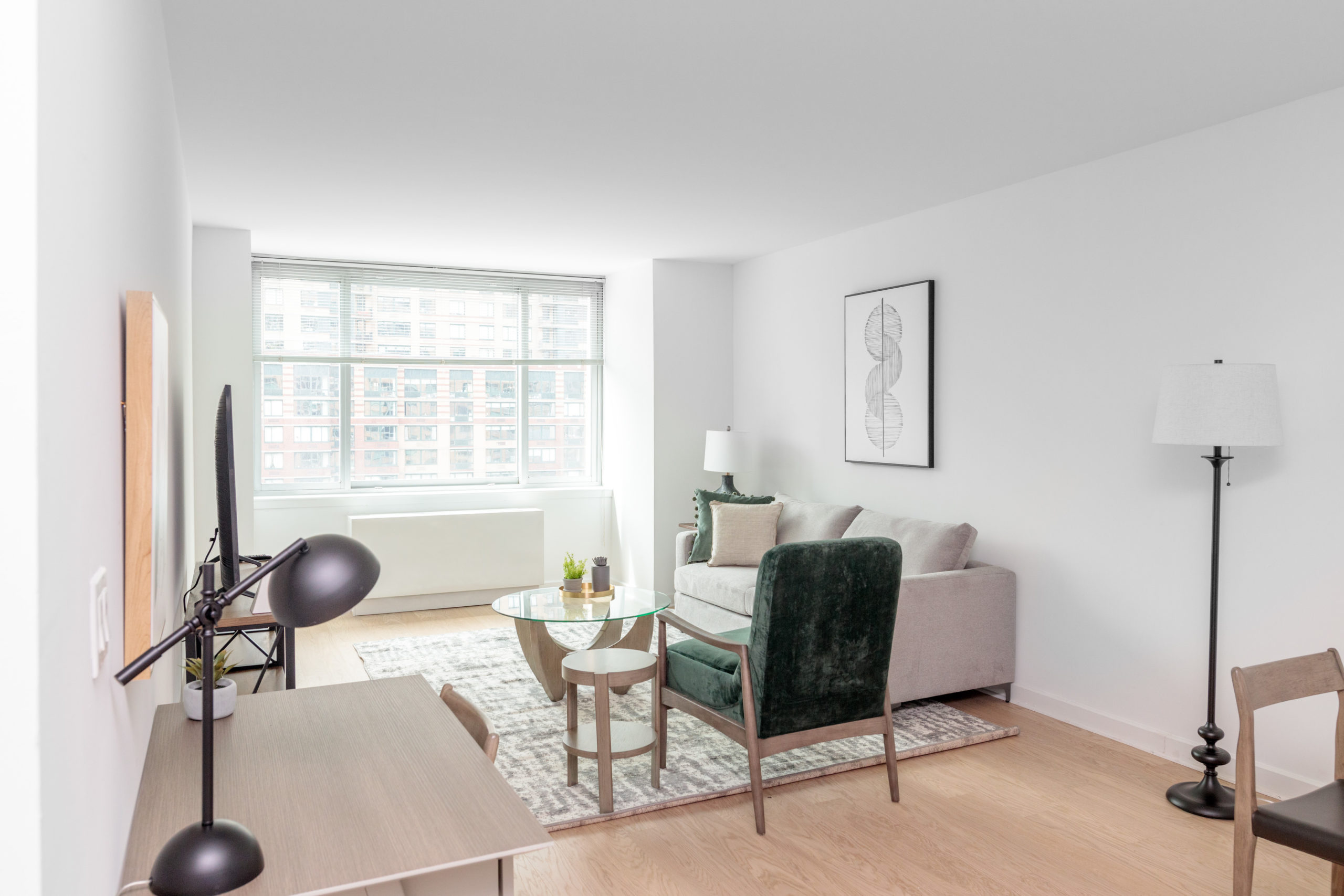
Is Renters’ Insurance Worth It?

If you’ve ever rented an apartment, you know that life can sometimes come at you fast. Not only do you have to think about paying rent each month, but you also have to occasionally prepare for unexpected damages to your personal property.
In the unfortunate event that your personal property is damaged or stolen, you may be wondering whether your landlord will cover the damage costs. After all, it is their property—right?
While this logic makes some sense, the hard truth is that you will be on the hook for any damages that occur to your personal property.
This is why purchasing renters’ insurance is absolutely worth it. Similar to homeowners’ insurance, renters’ insurance protects you from the unexpected. In this article, we’ll go over what you need to know about renters’ insurance, focusing on the following:
- What renters’ insurance covers
- What renters’ insurance doesn’t cover
- The pros and cons of renters’ insurance
- Cost of renters’ insurance
Let’s get started!
What renters’ insurance covers
Most renters assume that their personal property is covered under their landlord’s insurance. However, while their landlord’s insurance does cover the property itself, it never covers their tenants’ belongings. For personal property protection, you’ll need renters’ insurance.
A type of personal and liability coverage, renters’ insurance spans four main categories:
- Personal property protection
- Personal liability
- Medical expenses
- Other living expenses
Let’s break down these four coverages further:
1. Personal property protection
Is renters’ insurance worth it? Yes. From your automobile to your automatic coffee pot, you probably own more personal property than you think. In fact, the average U.S. renter’s personal property cost totals $30,000.
The last thing you want is for your personal property to get damaged through no fault of your own and not have the money you need to cover the costs.
Personal property protection is an aspect of renters’ insurance that covers your property up until your policy limit is reached. This type of coverage most commonly protects tenants against the following sources of property damage:
- Fire
- Lightning
- Wind
- Hail
- Theft
- Smoke
- Mold
- Water (except floods)
- Snow and ice
This type of coverage even protects against volcanoes!
2. Personal liability
Imagine this unfortunate but plausible scenario: Your neighbor brings their toddler over to visit and Muffin, your normally tame German shepherd, bites them. After treating their child, your neighbor decides to file a lawsuit against you for negligence.
If you have a policy that offers personal liability protection, your policy may cover part (or all) of the costs associated with damages and lawsuits. In short, personal liability coverage makes it so that you’re not liable for the costs of damages and lawsuits that stem from events that occur in your rental unit.
However, for this type of coverage to kick in, you must be the one at fault. But, if you’re not at fault for an accident, your medical expense coverage may still cover the incident.
3. Medical expenses
Unlike personal liability coverage, medical expense coverage helps take care of the costs of accidents that aren’t your fault.
For example, suppose your neighbor decides to give you another shot after the dog-biting incident. To make amends, she bakes you a casserole. But as she’s walking into your kitchen, she trips on her shoelaces and faceplants on your tile, breaking her wrist and damaging her teeth.
Following her medical visit, she emails you a list of her expenses. These include:
- Hospital stay
- Surgery
- Dental repair
The good news? If you have renters’ insurance, you won’t have to cover all of her expenses out of pocket.
4. Other living expenses
Renters’ insurance is also worth it because it covers additional living expenses that may arise. For example, suppose your apartment has become unlivable due to mold. Renters’ insurance can cover the cost of moving you to another unit or can help pay the cost of a prolonged hotel stay while your landlord removes the mold.
Additionally, renter’s insurance can help cover the cost of the following:
- Food spoilage: You don’t have to have a fridge full of duck, lobster, and caviar to take a big financial hit if your food spoils. Renters’ insurance can protect you against food spoilage costs in the event you lose power.
- Building add-ons/repairs: Although rare, you may be expected to help cover the cost of your landlord’s building additions and repairs. Fortunately, most renters’ insurance policies will help offset these costs.
What renters’ insurance doesn’t cover
Although renters’ insurance can make your rental experience a lot easier and cheaper, there are a few things it doesn’t cover, including:
- Certain disasters: While renters’ insurance covers most forms of natural disaster, it doesn’t cover damage from floods or earthquakes. It also doesn’t cover damages arising from riots.
- Car damage or theft: Chances are your car is the most expensive property you own. However, in the event your car is damaged or stolen, renters’ insurance won’t cover it. Instead, you’ll need car insurance.
- Pests and rodents: No matter how well you clean and spray your rental unit, sometimes pests and rodents just won’t stay out. Unfortunately, most policies won’t cover the costs associated with pest and rodent damage.
Now that you know what renters’ insurance will and will not cover, let’s take a look at the pros and cons of renters’ insurance.
Pros and cons of renters’ insurance
Renters’ insurance comes with many benefits, but it might not be the right choice for everyone. Let’s take a deeper look at the value of renters’ insurance:
Pros of renters’ insurance
- Saves money: As stated above, the average renter’s personal property is very valuable. Unfortunately, many people underestimate the value of their personal property. In the event your property becomes damaged, renters’ insurance will help cover the damage costs. This means you can save a lot of money in the long run.
- Affordable: Most people think renters’ insurance is wildly expensive. However, this couldn’t be further from the truth. In fact, the average policy costs around $168 a year. This cost is peanuts compared to what you’d have to pay in the event of significant property damage.
- Protects belongings away from home: One of the biggest benefits of renters’ insurance is that it can protect your belongings even if they’re damaged or stolen outside of your home. For instance, if working at a coffee shop and you spill your cappuccino on your laptop, renters’ insurance can help cover the cost of damages.
Cons of renters’ insurance
- Premiums: Like any insurance, renters’ insurance means you’ll have to pay a premium each month. If you’re really pressed for cash, you may need to save the money you’d otherwise spend on your premium. Of course, as stated above, this could be a gamble. If your property is damaged or stolen, the total cost may far exceed your premium price.
- Gaps in coverage: While renters’ insurance covers most belongings, it doesn’t cover your automobile and typically doesn’t cover really expensive possessions like jewelry. To cover these more expensive items, you’ll likely have to take out a supplemental policy.
- Factors in credit score: Like most insurance, one of the downsides of renters’ insurance is that your credit score is factored into the calculation. If you have bad credit, you’ll likely have to pay more for renters’ insurance. This becomes especially negative if your landlord requires you to have renters’ insurance.
In summary, renters’ insurance comes with many pros—and a few cons. Although this type of insurance is well worth it for most people, it may not be for you if you simply can’t afford it at the moment.
How much does renters’ insurance cost?
It’s important to remember that renters’ insurance really doesn’t cost a whole lot in the grand scheme of things. As stated above, the average renters’ insurance policy is around $168 per year.
That said, a few factors increase or decrease this price. These factors include:
- Location: Renters in major metropolitan areas can generally expect to pay more than tenants in more rural areas.
- Prior claims: Insurance companies may raise your premium price if you’ve filed claims in the past. This is because they may view you as riskier than someone who hasn’t filed any prior claims.
- Credit score: As with most things, your credit score is important when it comes to renters’ insurance. In general, the lower your credit score, the more you’ll have to pay for renters’ insurance.
Learn more about Landing
Regardless of whether you decide to invest in renters’ insurance, you can save on plenty of other hassles that come with renting a new apartment by renting from Landing. We offer fully furnished apartments in over 375 markets throughout the U.S., all with flexible leases that make it easy to stay for as long as you’d like—no lease break fees required.
Browse our available apartments today, or contact us to learn more about what Landing can do for you.









